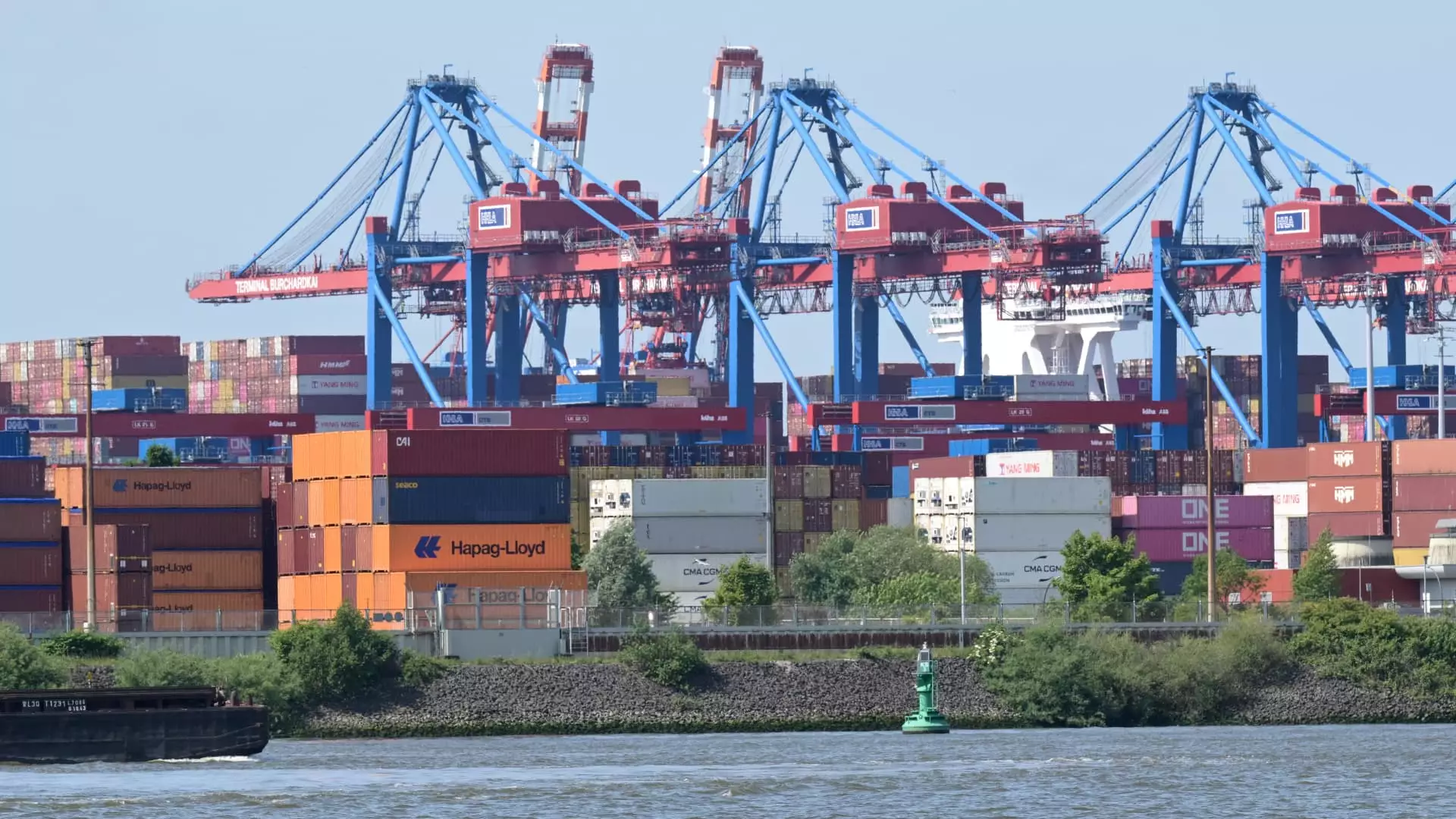As the clock winds down on the U.S.-European Union trade negotiations, tensions threaten to fray the fabric of one of the world’s most vital economic partnerships. For years, the transatlantic relationship has been a cornerstone of global commerce, facilitating billions in goods and services. Yet, beneath this veneer of cooperation lies underlying discord, especially as tariff threats loom on the horizon. The potential imposition of tariffs up to 50% by the U.S. on EU goods signals a deeper rift rooted in mistrust and conflicting interests, raising doubts about the durability of this critical alliance. The danger isn’t merely economic—it’s a threat to the political stability and mutual understanding that underpin the European-American relationship.
The negotiations are hitting a wall, and the stakes could not be higher. If no agreement is reached before the looming July 9 deadline, the repercussions could be severe: retaliatory tariffs from the EU targeting a broad spectrum of U.S. products, from automobiles to agriculture, threaten to escalate into a full-blown trade war. Such a conflict risks destabilizing global markets, and perversely, hits consumers on both sides hardest. The economic interdependence that has flourished for decades could face setbacks that might take years to mend. The efficacy of this partnership depends on the willingness of both sides to compromise—yet, the political climate in Washington and Brussels appears increasingly polarized and unwilling to yield.
Political Calculations Over Economics
The core obstacle in the negotiations transcends economics; it is rooted in political narratives and power struggles. U.S. President Donald Trump’s persistent criticisms of the EU’s trading policies reflect a nationalist impulse—an attempt to recalibrate a relationship he perceives as unfair. This rhetoric has undermined diplomatic efforts, transforming commercial dialogues into battlegrounds of political posturing. The EU, led by European Commission President Ursula von der Leyen, faces its own internal pressures, seeking to defend its economic sovereignty while also avoiding the fallout of a potential trade war.
Both Washington and Brussels are engaged in a delicate dance—balancing national interests with the overarching goal of transatlantic unity. Von der Leyen’s acknowledgment that only a “heads of terms” agreement might be feasible points to a recognition of these deep-seated issues. A detailed, comprehensive deal is “impossible” within the limited window, signaling that political compromises are unlikely to be substantive. Instead, what emerges may be a vague framework that leaves significant questions unanswered, leaving the door open for future disputes.
This fragile state of negotiations exposes the broader vulnerabilities within center-leaning liberalism. While the ideal of global cooperation remains attractive, pragmatic politics often hinder progress. The EU’s cautious stance underscores a desire to safeguard regional interests, even at the expense of short-term gains, embodying a pragmatic approach that prioritizes stability over expansive agreements. Meanwhile, the U.S. posture—more aggressive and unilateral—signals a fundamental shift away from the collaborative diplomacy that once defined the alliance. This dichotomy heightens the risk that political disputes overshadow genuine economic cooperation, further eroding trust.
The Broader Implications for Global Stability
In examining the stakes, one must recognize that the U.S.-EU relationship is not isolated; it influences global economic and political stability. With a combined trade volume estimated at nearly $2 trillion, the partnership acts as a linchpin for international commerce. A breakdown would send shockwaves through global supply chains, threaten multinational investments, and erode the rules-based trading system that has underpinned economic growth for decades.
There is also a moral dimension often ignored in these negotiations. The EU, with its substantial trade surplus in goods, also faces criticism from the U.S. for perceived unfairness. Yet, this overlooks the complexities of global trade balances, fair standards, and mutual development goals. Restricting negotiations to tariffs and immediate economic gain sidesteps the broader vision of fostering sustainable and equitable international trade. Instead, it risks entrenching a transactional approach that ignores the long-term importance of diplomatic trust.
Furthermore, the European Union’s cautious approach—favoring negotiations that emphasize “heads of terms” rather than comprehensive treaties—reflects a recognition that the political climate is too volatile for any quick fixes. This tactical retreat might preserve stability temporarily, but it also signals a potential capitulation to nationalist sentiments and short-term political gains that threaten global cooperation. The true cost of these negotiations lies in whether the transatlantic partnership can evolve into a resilient and forward-looking alliance that transcends immediate political pressures and addresses systemic issues like climate change, digital regulation, and global health.
In the end, the perseverance of this relationship depends less on economic numbers and more on political will—something that, at present, seems increasingly fragile and uncertain. The upcoming days will reveal whether diplomacy can outmaneuver division, or if the transatlantic promise will fade under the weight of political expediency.

Leave a Reply